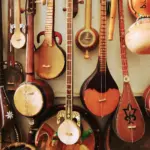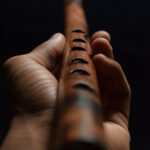Authenticity, Style & Vibe
At JLM, authenticity is key to our ethos when it comes to producing music. We genuinely seek out producers who are specialists within their genres—not necessarily the big names; instead, we value those who are just starting out, bringing a more raw, grassroots, and authentic sound that helps shape and create culture, really homing in on that cultural essence. When we talk about authenticity. Authenticity, for us, doesn’t have to be popular. We’re after something uniquely refreshing, earthy, and straight from the heart and soul, deep into communities.
This could be anything from Afrobeat, Highlife, Fuji, Gospel and traditional percussion-driven music, to Afro-electronic fusions and raw, instrumental sounds rooted in African culture, performed with live instruments or produced digitally. We welcome a blend of both traditional and modern styles that stay true to the spirit of grassroots African music.
We want to work with producers who take an alternative view of music and are interested in finding different ways to generate income from their talents without being restricted by what’s expected in the commercial world.
For us, authenticity in production is highly valued, and we encourage producers to experiment and explore new, interesting directions. Writing for library music comes with its own requirements, especially when thinking about what is most commonly used and why, as well as how tracks are arranged to suit different contexts. We want producers who embrace this and are ready to push the boundaries of their skills and experimentation.
We also strongly encourage collaboration, particularly when blending different genres and working with artists from various cultures. This kind of collaboration can give your music broader scope and make it more adaptable across different cultural contexts. While this approach can be beneficial, we understand that there are many ways to create, and this is just one that we subscribe to and realize the potential.
A few questions you might consider when exploring a genre:
- When did the genre first emerge?
- Which regions did it originate from?
- What are the demographics of the audience?
- Where is it mostly played?
- Who are the key players?
- How is the sound produced, what software is used, and with what instruments?
- How do they achieve that sound?
Everyone has genres that naturally resonate with their talents. Trust your instincts! But also feel free to take inspiration from different sources. The aim is to produce music that suits the catalogue and holds a good vibe. However, you approach it.
These guidelines are not definitive rules but a helpful framework to get you thinking in and out of the box and experimenting.






